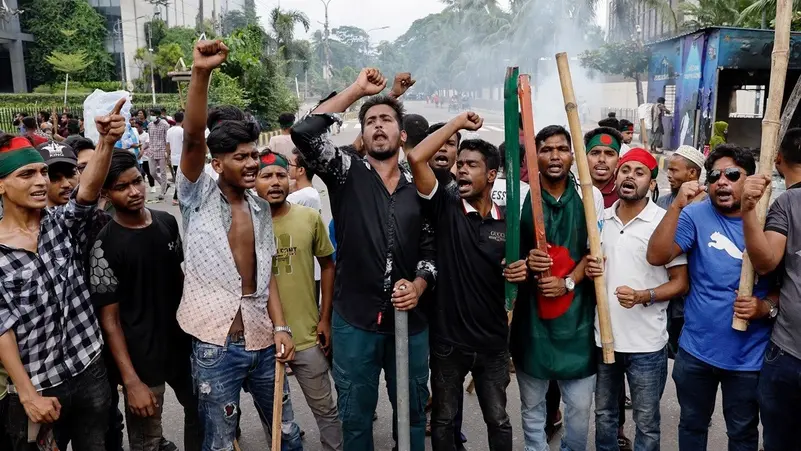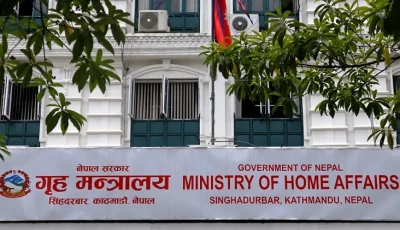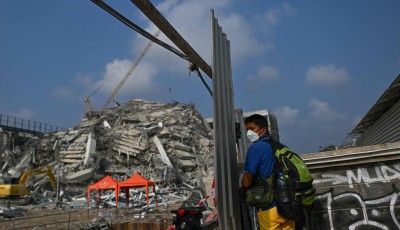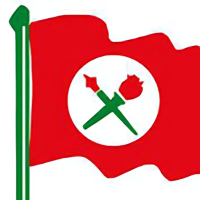Bangladesh Protesters Storm TV Station, Leading to Journalist Firings

A group of student protesters in Bangladesh entered the offices of the investor behind a television station on Tuesday, accusing it of "propaganda," with at least five journalists reportedly dismissed afterward.
The students had been involved in the August revolution that ousted Prime Minister Sheikh Hasina, whose tenure was widely criticized as one of the worst periods for media freedom in the country.
Hasnat Abdullah, convener of the Anti-Discrimination Students Movement, led a group of 15 to 20 students on December 17 to the offices of City Group, the investor behind Somoy Television.
"Somoy Television has been spreading propaganda, twisting my comments, and giving a platform to the views of a defunct political party," Hasnat told AFP.
"We are firm supporters of press freedom, but the media must remain impartial," he added, denying reports that the students had submitted a list of individuals they wanted fired.
The managing director of the conglomerate funding the television station did not respond to repeated requests for comment.
The incident has raised fears among journalists, particularly in the aftermath of the revolution.
Omar Faroque, a former senior editor at Somoy Television, confirmed that he was among the five journalists dismissed without explanation.
"The station's management asked a few of us to step down for the 'greater good' of the station," Faroque told AFP. "We requested an explanation for the decision, but they refused to provide one."
Interim leader Muhammad Yunus has consistently claimed he supports media freedom. Yunus' press secretary, Shafiqul Alam, sought to distance the government from the incident, stating that if anyone takes action, "the responsibility lies with them."
Press freedom organizations have reported that many journalists, particularly those seen as supportive of Hasina's government, are now facing police investigations in apparent retaliation for their past work.
At least four journalists are currently imprisoned, and numerous others face legal charges across the country.
Hasina's government was frequently accused of applying pressure on independent media outlets, including shutting down newspapers and TV channels and imprisoning journalists.
Following the fall of Hasina's government, several television stations, including Somoy TV, came under fire for their alleged ties to her Awami League party.
In November, protesters laid siege to the offices of Prothom Alo, the largest Bengali-language newspaper, and threatened to shut down The Daily Star.
Press freedom in Bangladesh has long been under threat. The country ranks 165th out of 180 nations in terms of press freedom, according to Reporters Without Borders.
















तपाईको प्रतिक्रिया दिनुहोस